Murphy, Biden continue to ignore serious offshore wind questions | Chris Smith
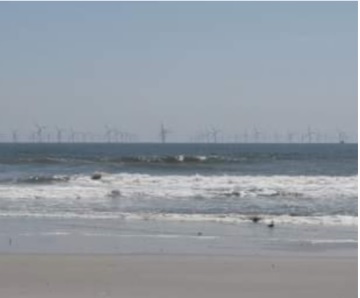 Because both the Murphy and Biden Administrations are forcing approximately 3,400 ocean wind turbines on us without our input, advice or consent. We say no—enough is enough. Because Murphy and Biden have not answered any of our profoundly serious questions—even dismissing our well-founded concern that sonar mapping of the ocean floor is contributing to the tragic spike in whale and dolphin deaths as ‘disinformation.’ We say no—enough is enough. And because there is absolutely no transparency in this egregiously flawed process—I authored two pieces of legislation that passed the House of Representatives to demand accountability. My first amendment, which passed in late March 244 to 189, tasked the Government Accountability Office—the Congressional watchdog agency—to investigate the ‘sufficiency of the environmental review processes for offshore wind projects…of the Marine Fisheries Service, the Bureau of Ocean Energy Management (BOEM) and any other relevant Federal agency.’ >>click to read<< 21:41
Because both the Murphy and Biden Administrations are forcing approximately 3,400 ocean wind turbines on us without our input, advice or consent. We say no—enough is enough. Because Murphy and Biden have not answered any of our profoundly serious questions—even dismissing our well-founded concern that sonar mapping of the ocean floor is contributing to the tragic spike in whale and dolphin deaths as ‘disinformation.’ We say no—enough is enough. And because there is absolutely no transparency in this egregiously flawed process—I authored two pieces of legislation that passed the House of Representatives to demand accountability. My first amendment, which passed in late March 244 to 189, tasked the Government Accountability Office—the Congressional watchdog agency—to investigate the ‘sufficiency of the environmental review processes for offshore wind projects…of the Marine Fisheries Service, the Bureau of Ocean Energy Management (BOEM) and any other relevant Federal agency.’ >>click to read<< 21:41
Alaska fishermen will be allowed to harvest lucrative red king crab in the Bering Sea
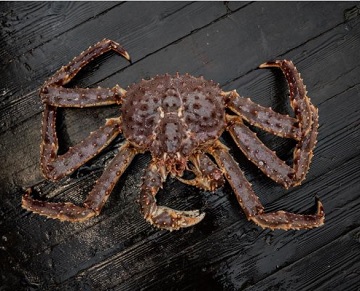 Alaska fishermen will be able to harvest red king crab for the first time in two years, offering a slight reprieve to the beleaguered fishery beset by low numbers likely exacerbated by climate change. There was no such rebound for snow crab, however, and that fishery will remain closed for a second straight year, the Alaska Department of Fish and Game announced Friday. “The Bristol Bay red king crab fishery for the prior two seasons were closed based on low abundance and particularly low abundance of mature-sized female crabs,” said Mark Stichert, the state department’s ground fish and shellfish management coordinator, “Based on survey results from this year, those numbers have improved, some signs of modest optimism in terms of improving abundance in Bristol Bay red king crab overall and that has allowed for a small but still conservative fishery for 2023 as the total population size is still quite low,” he said. >>click to read<<11:52
Alaska fishermen will be able to harvest red king crab for the first time in two years, offering a slight reprieve to the beleaguered fishery beset by low numbers likely exacerbated by climate change. There was no such rebound for snow crab, however, and that fishery will remain closed for a second straight year, the Alaska Department of Fish and Game announced Friday. “The Bristol Bay red king crab fishery for the prior two seasons were closed based on low abundance and particularly low abundance of mature-sized female crabs,” said Mark Stichert, the state department’s ground fish and shellfish management coordinator, “Based on survey results from this year, those numbers have improved, some signs of modest optimism in terms of improving abundance in Bristol Bay red king crab overall and that has allowed for a small but still conservative fishery for 2023 as the total population size is still quite low,” he said. >>click to read<<11:52
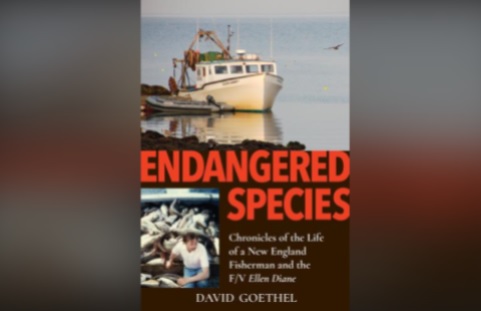
A fisherman’s view of the state of commercial fishing
If the control cord for the hoist at the Hampton State Pier had been the correct length and David Goethel had not lost his balance in reaching for it and had not fallen head-first to the floating dock 20 feet below, we may have never had the chance to read “Endangered Species,” just out from Peter Randall Publishing. That would be a shame. Goethel’s memoir of his life as a commercial fisherman on the Atlantic Ocean is by turns funny, scary, and educational. You may wince as he tells of the rough times and seas that fishermen sometimes face, where a high wave can cause a sharp knife to be impaled in one’s leg. It happened to Goethel, whose oldest son, Eric, had to use the Boy Scout life-saving skills he had just learned to help stop the bleeding. You may feel as frustrated as does Goethel when federal government and non-governmental actors force rules and regulations that make no sense and where the bureaucrats are dismissive of the fishermen who — spoiler alert — actually do know something about fishing and fish. >>click to read<< 08:07
Commercial Fisherman Arnold Herbert Benner of Friendship, Maine, has passed away
 Arnold Herbert Benner passed away at his home in Friendship on Thursday, October 5, 2023, with his family at his side. Recently celebrating his 80th birthday, he was born in Damariscotta on April 8, the son of Herbert & Anne Benner. He grew up in Friendship, started lobstering as a teenager and fished for more than 60 years. He won the title of the fastest lobster boat in Friendship three times. He graduated from Waldoboro High School. He bowled at DePatsy’s Lanes in Waldoboro, and with his wife, Alice, and was a member of the Coastal Clippers Square Dancing club. Arnold and Alice traveled around the country with family and took road trips to visit family and friends in Connecticut, Florida, Virginia, and Alabama. Highlights for Arnold included a ride in a race car at Daytona and driving his truck around the Talladega Superspeedway at 92 mph. >>click to read<< 19:54
Arnold Herbert Benner passed away at his home in Friendship on Thursday, October 5, 2023, with his family at his side. Recently celebrating his 80th birthday, he was born in Damariscotta on April 8, the son of Herbert & Anne Benner. He grew up in Friendship, started lobstering as a teenager and fished for more than 60 years. He won the title of the fastest lobster boat in Friendship three times. He graduated from Waldoboro High School. He bowled at DePatsy’s Lanes in Waldoboro, and with his wife, Alice, and was a member of the Coastal Clippers Square Dancing club. Arnold and Alice traveled around the country with family and took road trips to visit family and friends in Connecticut, Florida, Virginia, and Alabama. Highlights for Arnold included a ride in a race car at Daytona and driving his truck around the Talladega Superspeedway at 92 mph. >>click to read<< 19:54
Mayor Mitchell goes to bat for New Bedford’s fishermen, submits congressional testimony
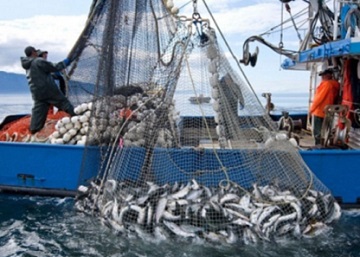 In his written submission, the Mayor explained why the federal government’s approach to fisheries management within the recently designated marine monuments matters to New Bedford’s commercial fishing fleet–the top-grossing fleet in the nation: “The management of marine fisheries in federal waters within the Northeast Canyons and Seamounts Marine National Monument is a matter of vital importance to the Port of New Bedford, Massachusetts – America’s top-valued commercial fishing port.” The Mayor encouraged Subcommittee members to take into account the unique role that New Bedford plays nationally in commercial fishing, saying “Our harbor serves not only the needs of the vessels that call New Bedford their home port, but also the needs of numerous East Coast vessels from North Carolina to Maine which land their catch in our port at different times during each fishing season. \The proper management of our nation’s marine fisheries is therefore crucial to the vitality of our port and our local and regional economy, but also to the nation, as we service the needs of an industry whose vessels operate up and down nearly the entirety of the East Coast.” >>click to read<< 14:54
In his written submission, the Mayor explained why the federal government’s approach to fisheries management within the recently designated marine monuments matters to New Bedford’s commercial fishing fleet–the top-grossing fleet in the nation: “The management of marine fisheries in federal waters within the Northeast Canyons and Seamounts Marine National Monument is a matter of vital importance to the Port of New Bedford, Massachusetts – America’s top-valued commercial fishing port.” The Mayor encouraged Subcommittee members to take into account the unique role that New Bedford plays nationally in commercial fishing, saying “Our harbor serves not only the needs of the vessels that call New Bedford their home port, but also the needs of numerous East Coast vessels from North Carolina to Maine which land their catch in our port at different times during each fishing season. \The proper management of our nation’s marine fisheries is therefore crucial to the vitality of our port and our local and regional economy, but also to the nation, as we service the needs of an industry whose vessels operate up and down nearly the entirety of the East Coast.” >>click to read<< 14:54
Virginia’s blue crab commercial harvest period extended
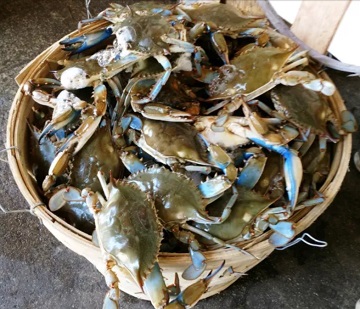 The Virginia Marine Resources Commission voted last week to approve the extension recommended by the Crab Management Advisory Committee. The harvest of crabs by hard crab pot is now Dec. 16, pushed back from Nov. 30. Lower bushel limits will begin Nov. 1 instead of Oct. 1. The purpose of these changes is to promote efficient utilization of blue crabs and economic stability for the fishing industry, according to the Marine Resources Commission. “Female crabs are not overfished, and overfishing is not occurring on them,” said Alexa Galván, a fisheries manager with the commission during a VRMC meeting. “But, the 2021 and 2022 exploitation rates were slightly above the target, not of the threshold which would be overfishing.” >>click to read<< 12:50
The Virginia Marine Resources Commission voted last week to approve the extension recommended by the Crab Management Advisory Committee. The harvest of crabs by hard crab pot is now Dec. 16, pushed back from Nov. 30. Lower bushel limits will begin Nov. 1 instead of Oct. 1. The purpose of these changes is to promote efficient utilization of blue crabs and economic stability for the fishing industry, according to the Marine Resources Commission. “Female crabs are not overfished, and overfishing is not occurring on them,” said Alexa Galván, a fisheries manager with the commission during a VRMC meeting. “But, the 2021 and 2022 exploitation rates were slightly above the target, not of the threshold which would be overfishing.” >>click to read<< 12:50
Two sisters run absolute gem of a pub in Devon fishing town
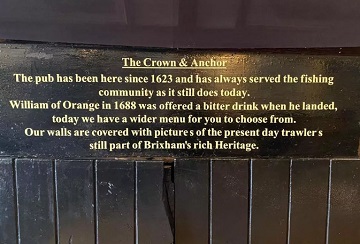 A much-loved fishermen’s pub in the heart of a Devon fishing town is still going strong as locals toast its 400 year anniversary. Erica Mundle and her sister Georgina Loasby are the brains behind the Crown and Anchor pub in Brixham. Erica, 41 and Georgina, 31 have owned the Quayside pub since December 2019 and they’re proud to say the place truly is frozen in time. Erica, who previously worked as a primary school teacher, said she feels grateful for all of its customers, a healthy mix of locals and holidaymakers who keep coming back year after year. The boozer is famed for its crab sandwiches and brandy coffee and is a great place to relax and enjoy stunning views. It has always been a pub at the heart of the fishing community and is loved by many, which is one of the main reasons Erica and Georgina decided not to change anything when they took over. Photos, >>click to read<< 09:41
A much-loved fishermen’s pub in the heart of a Devon fishing town is still going strong as locals toast its 400 year anniversary. Erica Mundle and her sister Georgina Loasby are the brains behind the Crown and Anchor pub in Brixham. Erica, 41 and Georgina, 31 have owned the Quayside pub since December 2019 and they’re proud to say the place truly is frozen in time. Erica, who previously worked as a primary school teacher, said she feels grateful for all of its customers, a healthy mix of locals and holidaymakers who keep coming back year after year. The boozer is famed for its crab sandwiches and brandy coffee and is a great place to relax and enjoy stunning views. It has always been a pub at the heart of the fishing community and is loved by many, which is one of the main reasons Erica and Georgina decided not to change anything when they took over. Photos, >>click to read<< 09:41
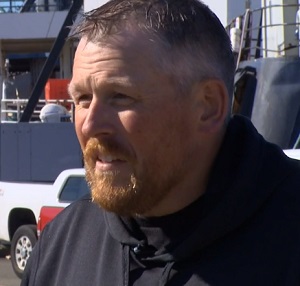
Alaska cancels snow crab harvest again due to population concerns
Crabbers from the Pacific Northwest who fish in Alaska had been watching and waiting for recommendations from the North Pacific Fishery Management Council, which met Thursday and Friday. Following the meetings, the Alaska Department of Fish and Game said Bering snow crab season will be closed for 2023-2024; Bristol Bay red king crab will open. Tanner crab will also be open for commercial fishermen. Both the snow crab and Bristol Bay red king crab seasons were closed in 2023. Crabbers and industry associations warned of the massive impact the decision would have on many small businesses, prompting calls by Congressional officials for an emergency declaration and federal aid. Video, >>click to read<< 08:18
Grounded Austro Carina boat leaks all its diesel into ocean at Red Bluff
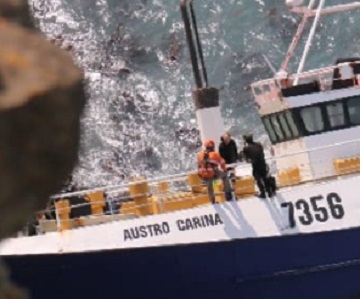 Thousands of litres of diesel has leaked from a boat which ran aground on Banks Peninsula two weeks ago, says Canterbury Regional Council. Large swells had broken up the Austro Carina fishing boat at Red Bluff near Shell Bay. The council said 10,000 litres of diesel had slowly dispersed over the past week. It said up to 400 litres of hydraulic oil could also be leaking from the engine room, but crews could not reach it to check. Salvage teams had so far picked up 31 large bags of rubbish, debris and fish bins. Fishing nets had also been removed from the vessel, aside from some that were unable to be cut away from under the stern. The wreck had broken up significantly and had moved up the beach to the north. >>click to read<< 17:24
Thousands of litres of diesel has leaked from a boat which ran aground on Banks Peninsula two weeks ago, says Canterbury Regional Council. Large swells had broken up the Austro Carina fishing boat at Red Bluff near Shell Bay. The council said 10,000 litres of diesel had slowly dispersed over the past week. It said up to 400 litres of hydraulic oil could also be leaking from the engine room, but crews could not reach it to check. Salvage teams had so far picked up 31 large bags of rubbish, debris and fish bins. Fishing nets had also been removed from the vessel, aside from some that were unable to be cut away from under the stern. The wreck had broken up significantly and had moved up the beach to the north. >>click to read<< 17:24
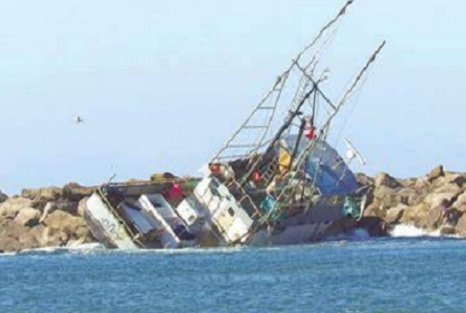
Beached fishing boat recovered
The fishing vessel Judy is floating again after a salvage attempt caused it to crash into the south Jetty and flip onto its side twice. The Judy was reported aground in the sand south of the South Jetty on Sept. 18. Since then, owners made several attempts to refloat the vessel at high tide but were unsuccessful. At the salvage site, one could see two US Coast Guard motor lifeboats at the end of the bar, and the 102-foot tugboat Noelani about 1/3 of a mile out with a long, buoyed line connecting it to the Judy. O as the Judy began to inch forward, eventually floating upright as floated away from the shore. However, as it was being pulled, the Judy began to move precariously nearer to the south Jetty. The tug could be seen moving south to counter the move but when tension was applied to the tow line, the Judy veered right and hit the rocks. 3 photos, >>click to read<< 15:00
Cost of Canada’s new flagship ocean science vessel jumps a further $300M
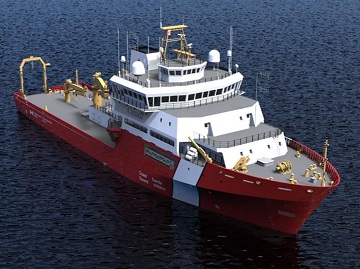 The budget for Canada’s new flagship ocean research ship increased 28 per cent this year jumping from $995 million to $1.28 billion. Construction of the offshore oceanographic science vessel is underway at the Seaspan Shipyards in North Vancouver, B.C., as part of the National Shipbuilding Strategy.It will replace the decommissioned Canadian Coast Guard Ship Hudson — now at a wreckers yard — to provide scientific and ocean mapping missions in Atlantic Canada. The offshore oceanographic science vessel is the key platform to track climate change in the Atlantic Ocean and Gulf of St Lawrence. Delivery is expected in 2025 and the ship will be based in Dartmouth, N.S.>>click to read<< 11:53
The budget for Canada’s new flagship ocean research ship increased 28 per cent this year jumping from $995 million to $1.28 billion. Construction of the offshore oceanographic science vessel is underway at the Seaspan Shipyards in North Vancouver, B.C., as part of the National Shipbuilding Strategy.It will replace the decommissioned Canadian Coast Guard Ship Hudson — now at a wreckers yard — to provide scientific and ocean mapping missions in Atlantic Canada. The offshore oceanographic science vessel is the key platform to track climate change in the Atlantic Ocean and Gulf of St Lawrence. Delivery is expected in 2025 and the ship will be based in Dartmouth, N.S.>>click to read<< 11:53

Anti-Wind Farm Group Sues R.I. Coastal Agency Over Revolution Wind Approval
Green Oceans, the Rhode Island citizens group that fiercely opposes offshore wind farms, is in the midst of a civil lawsuit it has filed against the state Coastal Resources Management Council (CRMC), claiming the council violated the constitution, state regulations, and its own responsibilities when it approved the Revolution Wind farm in May. The lawsuit, being heard in Newport Superior Court, asks the court to vacate the CRMC’s decision, which, in effect, declared that the wind farm conforms to the state’s Ocean Special Area Management Plan (SAMP), provided that the developer, Revolution Wind LLC, takes some agreed-upon mitigating actions. Attorneys for the CRMC fired back, stating that private citizens have no legal standing to bring such a suit, that Green Oceans has not suffered injury because of the CRMC action, that the complaint was filed past deadline, and that Green Oceans was taking the action without an attorney, which is not allowed. >>click to read<< 11:02

UMaine researcher who helped reshape marine science in Maine retires
When Bob Steneck came to the University of Maine in 1982, there were few marine ecologists in the state, and none interacted with fishermen. He was among the first in Maine to work with lobstermen on research, traveling with them on their boats, diving to the seafloor to study lobsters and sharing his findings with them. At that time, there was a scientific consensus that the lobster population in the Gulf of Maine was declining. By working with lobstermen and diving down to the depths of the gulf, Steneck showed that the population was actually on the rise. Steneck’s work and that of his students and colleagues helped propel an expansion of and change in how lobster fisheries research is conducted in Maine. Over the preceding decades, Steneck’s students continue collaborating with lobstermen and other fishermen on their studies. >>click to read<< 10:05
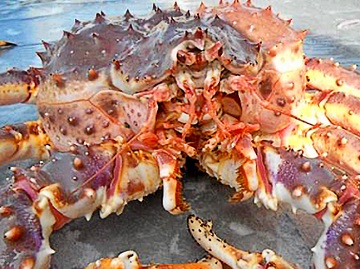
Bristol Bay red king crab fishery could return after two years on ice
The Alaska Department of Fish and Game is set to decide Friday whether or not to reopen the Bristol Bay red king crab fishery, which has been closed since 2021. Their decision will be based on recommendations from the North Pacific Fishery Management Council, which is meeting through Oct. 11 in Anchorage. During the Council’s meeting Tuesday, the Crab Plan Team presented data and analysis on Bristol Bay crab stocks from the summer trawl survey to the Scientific and Statistical Committee. Mike Litzow is a co-chair for the team and the shellfish assessment program manager and director at the National Oceanic and Atmospheric Administration’s Kodiak Lab. Litzow said while male and female crab are still at historic lows, the fishery is not at or approaching an “overfished” status. >>click to read<< 08:48
Federal Jury Convicts Montauk Fisherman
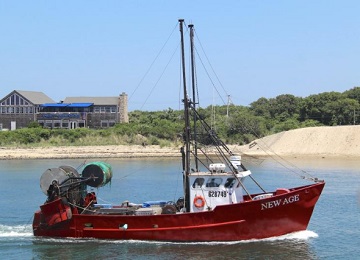 A federal jury convicted a Montauk fisherman on Wednesday of falsifying records in order to sell fluke and black sea bass in quantities that vastly exceeded legal limits. Christopher Winkler, captain of the trawler New Age, was found guilty in federal court in Central Islip on five counts of conspiracy, mail fraud, and obstruction of justice for filing false reports to federal regulators. Bryan and Asa Gosman, both of Montauk, were also initially charged, but the cousins, who are among the owners of Gosman’s Dock in Montauk, cooperated with the prosecution and testified against Mr. Winkler. Each pleaded guilty to one count of conspiracy and were fined. Richard Levitt, an attorney representing Mr. Winkler, said in an email on Wednesday that Mr. Winkler will appeal the conviction. A sentencing date has not been set, he said, nor have sentencing guidelines been determined. >>click to read<< 07:56
A federal jury convicted a Montauk fisherman on Wednesday of falsifying records in order to sell fluke and black sea bass in quantities that vastly exceeded legal limits. Christopher Winkler, captain of the trawler New Age, was found guilty in federal court in Central Islip on five counts of conspiracy, mail fraud, and obstruction of justice for filing false reports to federal regulators. Bryan and Asa Gosman, both of Montauk, were also initially charged, but the cousins, who are among the owners of Gosman’s Dock in Montauk, cooperated with the prosecution and testified against Mr. Winkler. Each pleaded guilty to one count of conspiracy and were fined. Richard Levitt, an attorney representing Mr. Winkler, said in an email on Wednesday that Mr. Winkler will appeal the conviction. A sentencing date has not been set, he said, nor have sentencing guidelines been determined. >>click to read<< 07:56
Fukushima sake brewer warms shattered Japanese fishing community
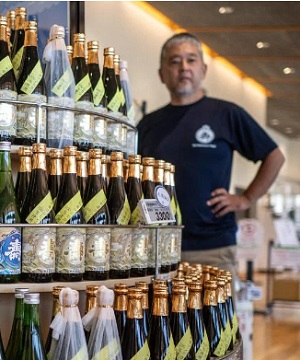 Daisuke Suzuki is helping by doing what he does best as life tentatively returns to normal for the devastated fishing communities of Japan’s Fukushima region: making sake. The “toji” sake master and his family were lucky to escape with their lives when a huge earthquake and tsunami devastated the area in March 2011, killing about 18,000 people and knocking out the nearby nuclear plant. In the town of Namie, the disaster obliterated the old port of Ukedo and its local fishing industry, as well as the Iwaki Kotobuki sake brewery that Suzuki’s family has owned for five generations. For two centuries, at least, it had made the rice wine that revived many a fisherman’s spirits after returning to port from the capricious Pacific Ocean with a hold brimming with fish. They would drink cups of Iwaki Kotobuki sake over white-meat sashimi of flounder and bass, delicacies from the Fukushima coast. “The sake was always there, just like the fish,” said one taciturn local fisherman, not wishing to be identified. “That is the way it has been here since my childhood.” Two years ago, the government gave the all-clear for the sale of fish from the Fukushima region to resume. The fisherman needed something to drink, and Suzuki then built a new sake plant back in Namie. >>click to read<< 15:42
Daisuke Suzuki is helping by doing what he does best as life tentatively returns to normal for the devastated fishing communities of Japan’s Fukushima region: making sake. The “toji” sake master and his family were lucky to escape with their lives when a huge earthquake and tsunami devastated the area in March 2011, killing about 18,000 people and knocking out the nearby nuclear plant. In the town of Namie, the disaster obliterated the old port of Ukedo and its local fishing industry, as well as the Iwaki Kotobuki sake brewery that Suzuki’s family has owned for five generations. For two centuries, at least, it had made the rice wine that revived many a fisherman’s spirits after returning to port from the capricious Pacific Ocean with a hold brimming with fish. They would drink cups of Iwaki Kotobuki sake over white-meat sashimi of flounder and bass, delicacies from the Fukushima coast. “The sake was always there, just like the fish,” said one taciturn local fisherman, not wishing to be identified. “That is the way it has been here since my childhood.” Two years ago, the government gave the all-clear for the sale of fish from the Fukushima region to resume. The fisherman needed something to drink, and Suzuki then built a new sake plant back in Namie. >>click to read<< 15:42
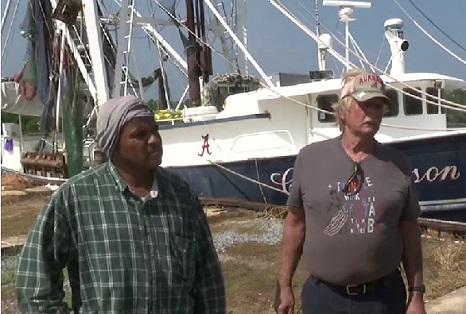
Hard-hit Bayou La Batre shrimpers say they need all the help they can get
Shrimpers say this is the best time of the year to harvest the crustaceans, but most of the shrimp boats in this seafood capital are tied up on the docks these days. James Mason, who has fished his entire life, said it simply isn’t profitable to go hunting for shrimp. “Haven’t been out in a year,” he said. The Wilmer resident said that to make ends meet, he has been working at a shipyard not far from where the Capt. Mason sits idle. He said he even tried working for a month on an oyster boat in New Jersey. Sen. Tommy Tuberville (R-Auburn) last month offered legislation that would create a task force to monitor foreign subsidies of shrimp and other agricultural products. He said he hopes that would greatly speed up enforcement. “We need some help, and I’m talking about urgent help,” he said. “If we don’t get some help, I don’t’ know if we’ll survive.” Added Mason: “Everybody in this bayou is hurting. Everybody. It doesn’t matter who it is.” Video, >>click to read<< 11:46
Grounded Austro Carina trawler at Banks Peninsula starting to break up, salvage could take months
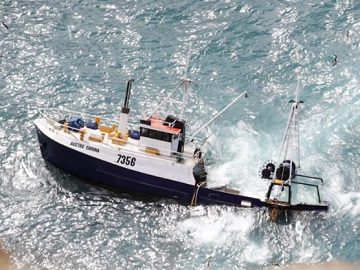 The fishing boat that ran aground at Banks Peninsula carrying thousands of litres of diesel is breaking up, Canterbury Regional Council says. Heavy swells continue to make it difficult for crews to get to the Austro Carina, which ran aground near a marine reserve at Shell Bay’s Red Bluff on 24 September. The boat was carrying about 10,000 litres of diesel and 400 litres of hydraulic oil. The council warned it could take months to salvage the wreck, with the necessary equipment unavailable in New Zealand. Wild weather that battered Banks Peninsula earlier this week ripped a hole in the boat. >>click to read<< 09:50
The fishing boat that ran aground at Banks Peninsula carrying thousands of litres of diesel is breaking up, Canterbury Regional Council says. Heavy swells continue to make it difficult for crews to get to the Austro Carina, which ran aground near a marine reserve at Shell Bay’s Red Bluff on 24 September. The boat was carrying about 10,000 litres of diesel and 400 litres of hydraulic oil. The council warned it could take months to salvage the wreck, with the necessary equipment unavailable in New Zealand. Wild weather that battered Banks Peninsula earlier this week ripped a hole in the boat. >>click to read<< 09:50
Lifelong Chatham Fisherman Arthur “Sonny” Mallowes has passed away
 Arthur “Sonny” Mallowes 95, passed away at home, surrounded by family and his 4-legged buddies. He was the genuine article; a true Chathamite. Born at Cape Cod Hospital, son of Edward and Cecilia Mabel Mallowes, he lived a solidly good and simple life. He entered the Coast Guard after High School and was stationed on the Handkerchief Shoal Lightship, serving his country on the water and then went on to serve his family as a fisherman. Sonny met his future wife, Thelma Morrell, on a blind date arranged by her cousin. They married 6 months later. They are both survived by two sons, Edward and David Mallowes, their wives and families. He was particularly proud of son Edward being the Captain of a New Bedford scalloper and of David being a lobsterman. He was a lifelong Chatham fisherman, well into his eighties. If you knew Sonny, you knew he had nine lives. Two of them involved falling overboard, once in his youth from the Lightship, and once in his senior years while quahogging locally. >>click to read<< 008:58
Arthur “Sonny” Mallowes 95, passed away at home, surrounded by family and his 4-legged buddies. He was the genuine article; a true Chathamite. Born at Cape Cod Hospital, son of Edward and Cecilia Mabel Mallowes, he lived a solidly good and simple life. He entered the Coast Guard after High School and was stationed on the Handkerchief Shoal Lightship, serving his country on the water and then went on to serve his family as a fisherman. Sonny met his future wife, Thelma Morrell, on a blind date arranged by her cousin. They married 6 months later. They are both survived by two sons, Edward and David Mallowes, their wives and families. He was particularly proud of son Edward being the Captain of a New Bedford scalloper and of David being a lobsterman. He was a lifelong Chatham fisherman, well into his eighties. If you knew Sonny, you knew he had nine lives. Two of them involved falling overboard, once in his youth from the Lightship, and once in his senior years while quahogging locally. >>click to read<< 008:58
The Western Flyer Returns Home to Monterey!
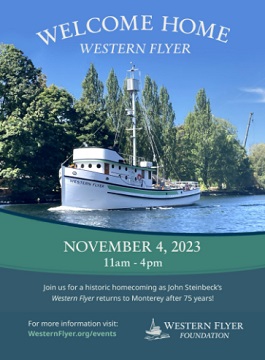 She’s coming home at last! After being away for 75 years, the historic Western Flyer—the sardine fishing boat immortalized by John Steinbeck’s 1951 classic The Log from the Sea of Cortez—will return to her home port of Monterey on Saturday, November 4th. “The Western Flyer was built for Monterey’s sardine fishery in 1937, and while it gained notoriety from its 1940 research trip with John Steinbeck and Ed Ricketts, it’s had a long and storied past as a fishing boat,” said marine geologist John Gregg, founder and board member of the Western Flyer Foundation. “Now restored with a hybrid diesel-electric engine and state-of-the-art marine lab, the Flyer symbolizes a bridge, linking Monterey’s commercial fishing heritage with its leadership in marine science and education.” When Gregg purchased the Western Flyer in 2015, the neglected 77-foot fishing vessel had sunk several times and was almost beyond repair. >>click to read<< 07:50
She’s coming home at last! After being away for 75 years, the historic Western Flyer—the sardine fishing boat immortalized by John Steinbeck’s 1951 classic The Log from the Sea of Cortez—will return to her home port of Monterey on Saturday, November 4th. “The Western Flyer was built for Monterey’s sardine fishery in 1937, and while it gained notoriety from its 1940 research trip with John Steinbeck and Ed Ricketts, it’s had a long and storied past as a fishing boat,” said marine geologist John Gregg, founder and board member of the Western Flyer Foundation. “Now restored with a hybrid diesel-electric engine and state-of-the-art marine lab, the Flyer symbolizes a bridge, linking Monterey’s commercial fishing heritage with its leadership in marine science and education.” When Gregg purchased the Western Flyer in 2015, the neglected 77-foot fishing vessel had sunk several times and was almost beyond repair. >>click to read<< 07:50
Fisherman Convicted in Plot to Sell $900,000 of Illegal Fluke and Bass
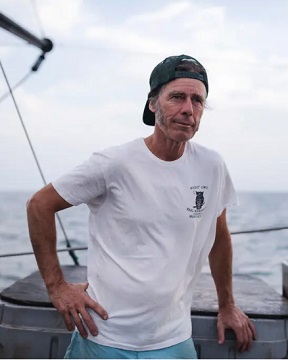 A Montauk, N.Y., fisherman accused of vastly exceeding legal limits on how much fluke he could bring ashore was convicted on all charges in a federal court in Central Islip on Wednesday. Chris Winkler, 63, captain of a 45-foot trawler called the F/V New Age, was accused of falsifying records in order to sell illegal fluke, also known as summer flounder, and black sea bass to partners from Gosman’s Dock, a mini-empire of restaurants and shops in Montauk, and dealers in the New Fulton Fish Market in the Bronx. Prosecutors said the over-quota fish was worth nearly $900,000 on the wholesale market. Two cousins from the Gosman family were initially charged — but they flipped and testified against Mr. Winkler, with one claiming he had helped the F/V New Age evade detection by the Coast Guard. Mr. Winkler could face many years in prison on five charges of conspiracy, obstruction and mail fraud, though he is unlikely to receive a lengthy sentence under federal sentencing practices. He was stoic as the verdict was read in court on Wednesday. His lawyer Richard W. Levitt vowed to appeal, and said the case was based on outdated legal limits on fluke fishing. “There is nothing at all rational about this system, but Mr. Winkler and other Long Island fishermen are easy scapegoats for this regulatory insanity,” he said. >>click to read<< 15:28
A Montauk, N.Y., fisherman accused of vastly exceeding legal limits on how much fluke he could bring ashore was convicted on all charges in a federal court in Central Islip on Wednesday. Chris Winkler, 63, captain of a 45-foot trawler called the F/V New Age, was accused of falsifying records in order to sell illegal fluke, also known as summer flounder, and black sea bass to partners from Gosman’s Dock, a mini-empire of restaurants and shops in Montauk, and dealers in the New Fulton Fish Market in the Bronx. Prosecutors said the over-quota fish was worth nearly $900,000 on the wholesale market. Two cousins from the Gosman family were initially charged — but they flipped and testified against Mr. Winkler, with one claiming he had helped the F/V New Age evade detection by the Coast Guard. Mr. Winkler could face many years in prison on five charges of conspiracy, obstruction and mail fraud, though he is unlikely to receive a lengthy sentence under federal sentencing practices. He was stoic as the verdict was read in court on Wednesday. His lawyer Richard W. Levitt vowed to appeal, and said the case was based on outdated legal limits on fluke fishing. “There is nothing at all rational about this system, but Mr. Winkler and other Long Island fishermen are easy scapegoats for this regulatory insanity,” he said. >>click to read<< 15:28
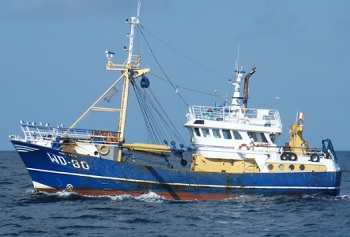
Arklow Fisherman Appeals to Politicians to Submit His Experience to EU Fishing Vessel Safety Review
The owner of former beam trawler Mary Kate has said his experience should inform the EU’s review of fishing vessel safety. Arklow fisherman CJ Gaffney has written to national and local politicians and MEPs to ask that they present his case to the EU review. Gaffney discovered serious stability issues with the Dutch trawler after he bought it in 2007 and was left with debts of 1 million euro. He tried to take legal action in both the Netherlands and Germany, took out a loan to cover fixing the vessel and then had to surrender it to the bank in 2012. He sought EU funds in compensation, but the EU said it was up to the national state. The vessel was broken up in New Ross, Co Wexford, earlier this year under the Government’s decommissioning scheme. >>click to read<< 13:09
Athearn Marine Agency Boat of the Week: 73′ Steel Shrimper, 3406 Cat Diesel
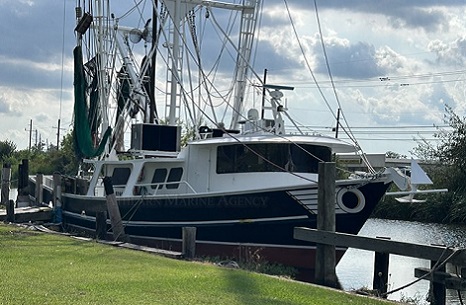 To review specifications, information, and 9 photos’, >click here<, To see all the boats in this series >click here< 10″31
To review specifications, information, and 9 photos’, >click here<, To see all the boats in this series >click here< 10″31
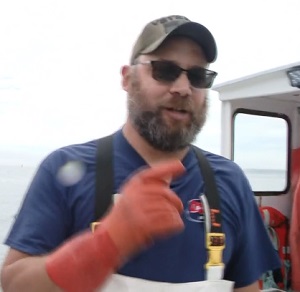
A teenager in Boothbay Harbor had a dream. After 27 years, he achieved it.
Nearly three decades ago Jerry Farnham was working as a sternman on his father’s lobster boat in Boothbay Harbor. Eyeing the people on the deck of a gorgeous yacht not far away, he began to wonder: “What if they just want to be like normal people? You know, maybe they want to come and watch lobster boat races. Maybe they want to go lobstering.” The thought stuck with Farnham, who was only 16 years old, and with it came another notion. He wanted to take that idea and turn it into a novel, one set in Boothbay Harbor and filled with characters like the people he’d grown up with. It was easier said than done. One day in June of this year, he sat down at a table in Sherman’s and signed copies of his novel “Red at Night.” Video, >>click to read<< 09:22
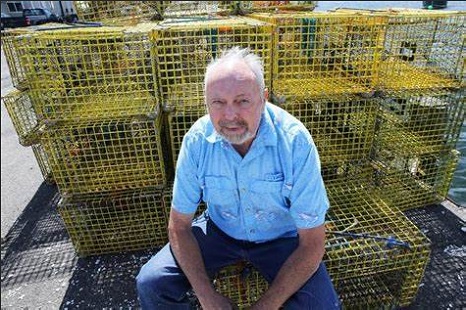
‘We are the endangered species’: Hampton fisherman David Goethel shares story in new book
For 40 years, David Goethel rode his 44-foot fish trawler the Ellen Diane from Hampton-Seabrook Harbor to Jeffreys Ledge off the coast of New Hampshire. His new book “Endangered Species,” published by Peter Randall of Portsmouth, shares his life story as well as a warning that today’s federal regulations are putting small boats out of business. “We are the endangered species,” Goethel said. Goethel, 69, retired last year to focus on treatment for cancer that is now in remission. A voice for the New Hampshire fishing community, Goethel said he was encouraged by his son to write his story so future generations can learn how small-boat trawlers were brought to the brink of extinction. “So that when that happens, they’ll at least have some accurate portrayals of lives,” Goethel said. “But also how they ended up in that position.” Photos, >>click to read<< 07:46
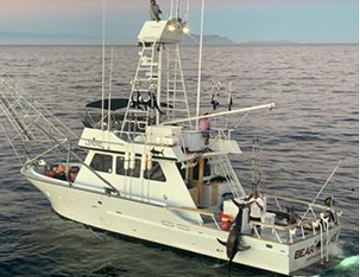
First permits issued for swordfish captains in California
The first commercial fishing permits for the use of deep-set buoy gear in the swordfish fishery in the US state of California were issued by the National Marine Fisheries Service on September 15, marking a significant transition from the large nets that drifted off the West Coast. Gillnets will finally disappear by 2027, replaced mostly by deep-set buoy gear — vertical lines about 150 fathoms long, with a flagpole with a light or radar reflector on top and a bug- and sinker to keep the line anchored vertically. Main lines usually have one to three round hooks with a light attached to shine below the thermocline in 20 to 70 meters (65 to 230 feet) of California water. The gear is designed to be actively maintained, with strike indicators on the surface to alert anglers when a fish is present. >>click to read << 16:23

EPA fines American Seafoods nearly $1 million for Clean Water Act violations
American Seafoods Company is the world’s largest at-sea processor of Alaska pollock and holds the largest allocation of Wild Pacific Hake. The company operates a fleet of seven vessels in the North Pacific Ocean and Bering Sea. The EPA cited the company and the owners of its vessels for hundreds of violations along the Oregon and Washington coasts, including discharging waste in a protected area, failure to monitor discharges and reporting inaccurate information in required annual reports, according to a Thursday statement. “Discharge of seafood processing waste in prohibited areas and within the 100-meter depth contour of Washington and Oregon exacerbates already existing low-oxygen conditions which negatively impact most fishes, crabs and other marine life,” the EPA said. >>click to read<< 10:46
N.L. processors dumped 5 times as much crab in 2023 as they did last year
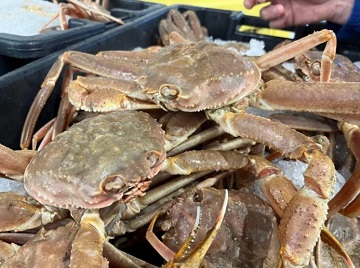 Newfoundland and Labrador fish processors dumped more than 300,000 pounds of snow crab during the past season — more than five times the amount dumped last year — according to data from the provincial Department of Fisheries, Forestry and Agriculture. In 2023, processors dumped 303,202 pounds of crab, compared with 59,239 in 2022 — a 411 per cent increase. Officials have not confirmed the reasons for the increased dumping, but harvesters blame a compressed season and unusually warmer waters. The 2023 snow crab season was marred with conflict from the outset: a six-week standoff over the $2.20-per-pound price that pushed the start of the season well into May, sending harvesters scrambling to catch what they could before cut-off and creating a bottleneck of boats on the water and product at plants. Photos, >>click to read<< 09:46
Newfoundland and Labrador fish processors dumped more than 300,000 pounds of snow crab during the past season — more than five times the amount dumped last year — according to data from the provincial Department of Fisheries, Forestry and Agriculture. In 2023, processors dumped 303,202 pounds of crab, compared with 59,239 in 2022 — a 411 per cent increase. Officials have not confirmed the reasons for the increased dumping, but harvesters blame a compressed season and unusually warmer waters. The 2023 snow crab season was marred with conflict from the outset: a six-week standoff over the $2.20-per-pound price that pushed the start of the season well into May, sending harvesters scrambling to catch what they could before cut-off and creating a bottleneck of boats on the water and product at plants. Photos, >>click to read<< 09:46
Maine State Chamber of Commerce puts spotlight on lobster
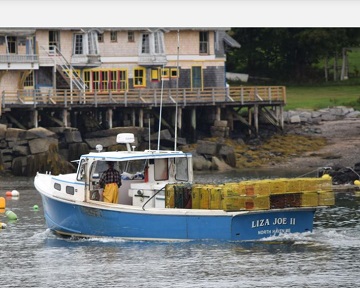 Maine lobster contributes $1.4 billion to the state economy and 4,000 jobs on the shore, from live lobster dealers to processors to workers on the piers. And those numbers don’t include lobster-based tourism, Linda Caprara, interim CEO of the Maine State Chamber of Commerce, noted Sept. 28 in an online panel discussion in honor of Maine Lobster Week. Then, there are the 5,000 licensed lobstermen and their crew who all earn their livelihood on the water. Last year, just below 100 million pounds of lobster landed on docks from Portland to Lubec with a value of about $390 million. “We’re catching a lot of lobster,” said Marianne LaCroix, executive director of the Maine Lobster Marketing Collaborative. >>click to read<< 08:51
Maine lobster contributes $1.4 billion to the state economy and 4,000 jobs on the shore, from live lobster dealers to processors to workers on the piers. And those numbers don’t include lobster-based tourism, Linda Caprara, interim CEO of the Maine State Chamber of Commerce, noted Sept. 28 in an online panel discussion in honor of Maine Lobster Week. Then, there are the 5,000 licensed lobstermen and their crew who all earn their livelihood on the water. Last year, just below 100 million pounds of lobster landed on docks from Portland to Lubec with a value of about $390 million. “We’re catching a lot of lobster,” said Marianne LaCroix, executive director of the Maine Lobster Marketing Collaborative. >>click to read<< 08:51






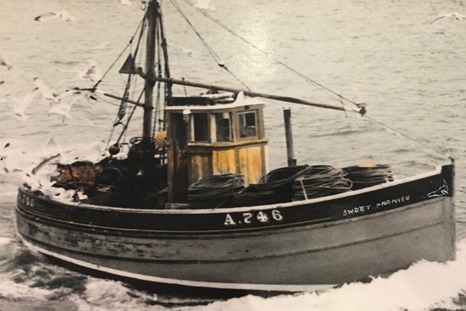
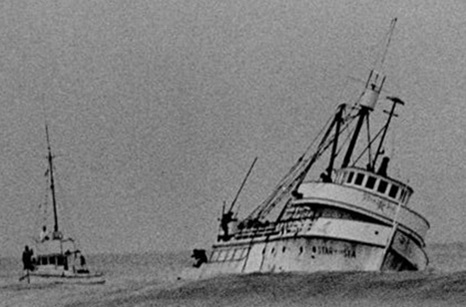

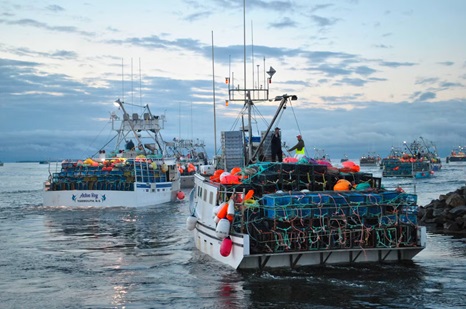
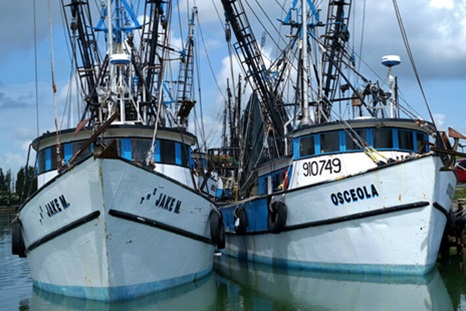
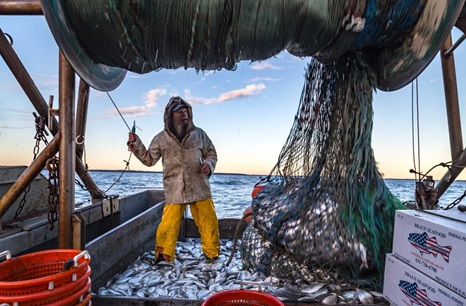

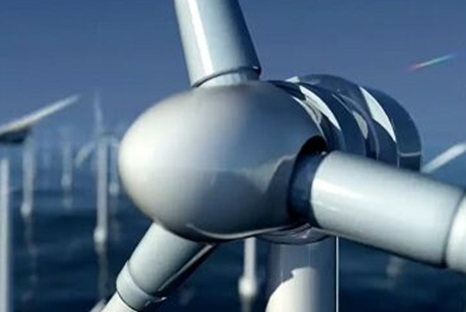
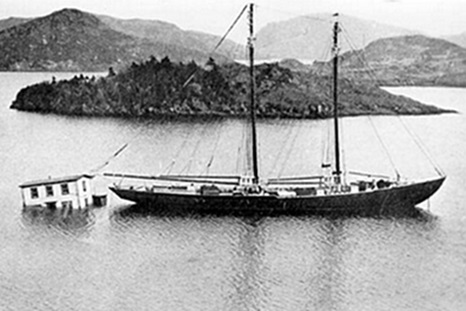



























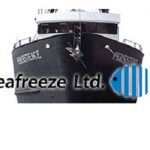
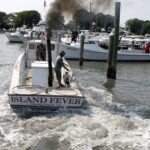
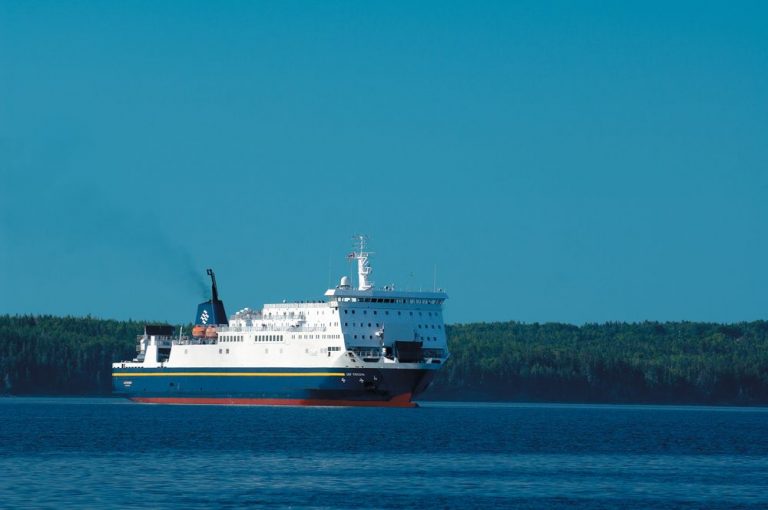

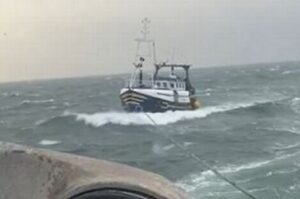


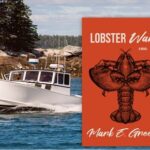



Commercial fishing industry deserves greater appreciation
Share this post